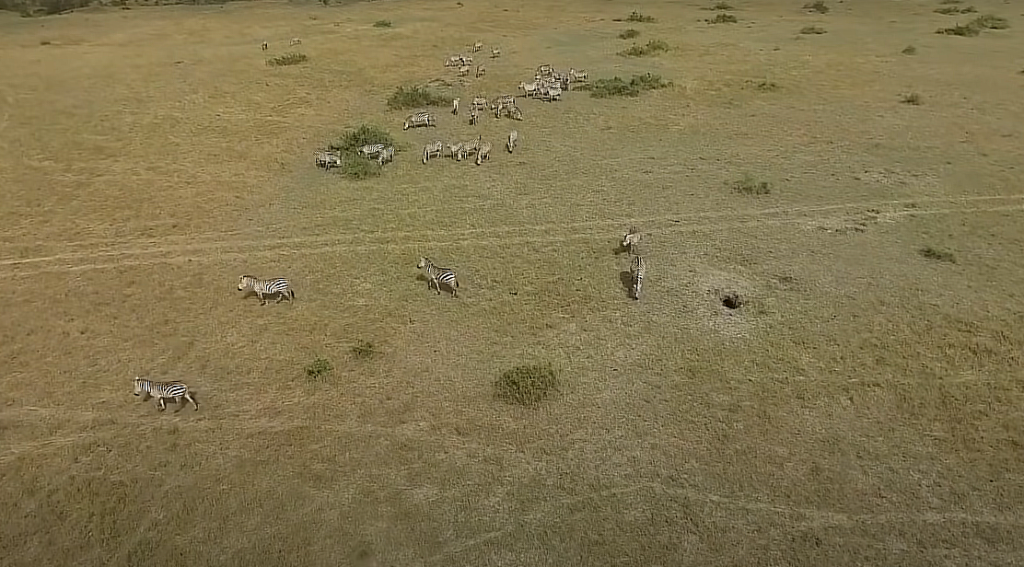
Discovering The Best Time to Travel to Africa: A Comprehensive Guide Are you planning a trip to Africa but unsure of the best time to go? There are various factors to consider, from weather conditions to wildlife experiences. In this section, I will explore everything you need to know to plan your African adventure.
Whether you want to witness the Great Migration in Kenya or soak up the sun on the beaches of South Africa, understanding the best time to travel is essential for a successful trip.
Key Takeaways:
- Planning a trip to Africa requires considering various factors, including weather and wildlife experiences.
- Optimal travel times differ depending on the specific region or country you plan to visit.
- Africa offers diverse experiences, from safaris to cultural festivals and beaches.
- Ensuring safety and health precautions are in place is crucial for a successful trip.
- With this guide, you will be equipped with the knowledge to plan a memorable journey to Africa.
Understanding Africa’s Diverse Climate
When planning a trip to Africa, it’s essential to understand the continent’s diverse climate. Africa spans across the equator, resulting in a range of temperatures and weather patterns. The best time to travel to Africa varies depending on which country or region you plan to visit, as each area has unique seasonal patterns.
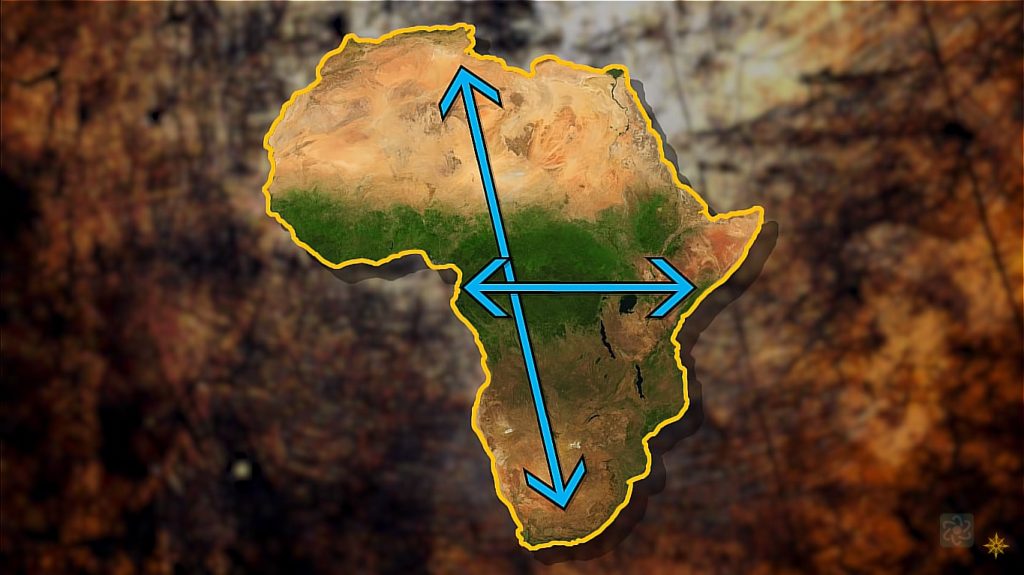
The northern regions of Africa, such as Morocco and Egypt, have a Mediterranean climate, characterized by hot, dry summers and mild winters. The central regions, including Kenya and Tanzania, have a tropical climate with two distinct seasons – a dry season and a rainy season. The southern regions, such as South Africa and Namibia, have a more temperate climate, with warm summers and mild winters.
It’s worth noting that Africa’s climate can be unpredictable, and weather patterns may vary from year to year. For instance, some areas in East Africa have had extended rainy seasons than usual, while others have experienced droughts, resulting in changes in wildlife migratory patterns. Therefore, it’s crucial to keep up-to-date with the current weather conditions and consult with your travel agent or tour operator to plan your trip accordingly.
Exploring Africa’s Seasons
When planning your trip to Africa, understanding the continent’s diverse climate is crucial in determining the best time to visit. Africa experiences four distinct seasons that vary depending on the region.
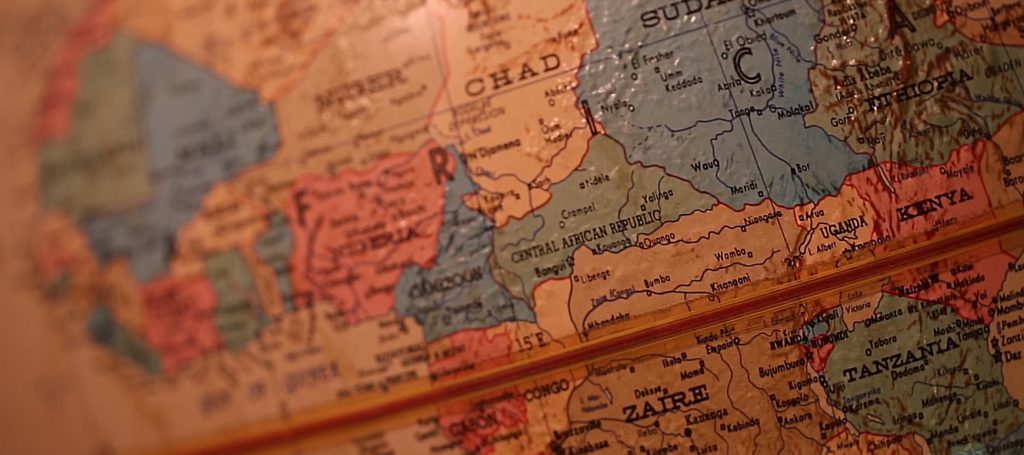
Summer (December – February)
In southern Africa, summer is characterized by hot temperatures, afternoon thunderstorms, and lush vegetation. This is the peak safari season as wildlife gathers around water sources, making for excellent game viewing opportunities.
In eastern and northern Africa, summer is the dry season, with hot and sunny days and cooler temperatures at night. This is the best time for trekking, hiking, and mountain climbing.
Autumn (March – May)
Autumn in Africa is the shoulder season between summer and winter, with mild temperatures and fewer crowds. This is a great time for outdoor activities such as hiking, wildlife safaris, and cultural tours.
Winter (June – August)
Winter in Africa is dry and sunny, with cool temperatures and clear skies. This is the best time for game viewing in southern Africa, as animals gather around water sources and the vegetation thins out. In eastern and northern Africa, winter is the rainy season, making it a great time for bird watching and lush landscapes.
Spring (September – November)
Spring in Africa is characterized by warm temperatures, clear skies, and blooming flowers. This is a great time for wildlife safaris, as animals give birth to their young, offering unique and adorable sightings. It is also the best time for beach vacations along the coastline, with warm waters and plenty of sunshine.
Overall, the best time to travel to Africa depends on your interests and preferences. Consider the activities you want to engage in and the regions you want to explore to determine the optimal time for your African adventure.
The Magic of African Safaris
African safaris are undoubtedly one of the main highlights of a trip to Africa, offering travelers the chance to experience some of the most spectacular wildlife encounters in the world. However, to make the most out of your safari adventure, timing is key. Choosing the best time to travel to Africa for a safari will depend on several factors, including weather conditions and the unique wildlife experiences each season offers.
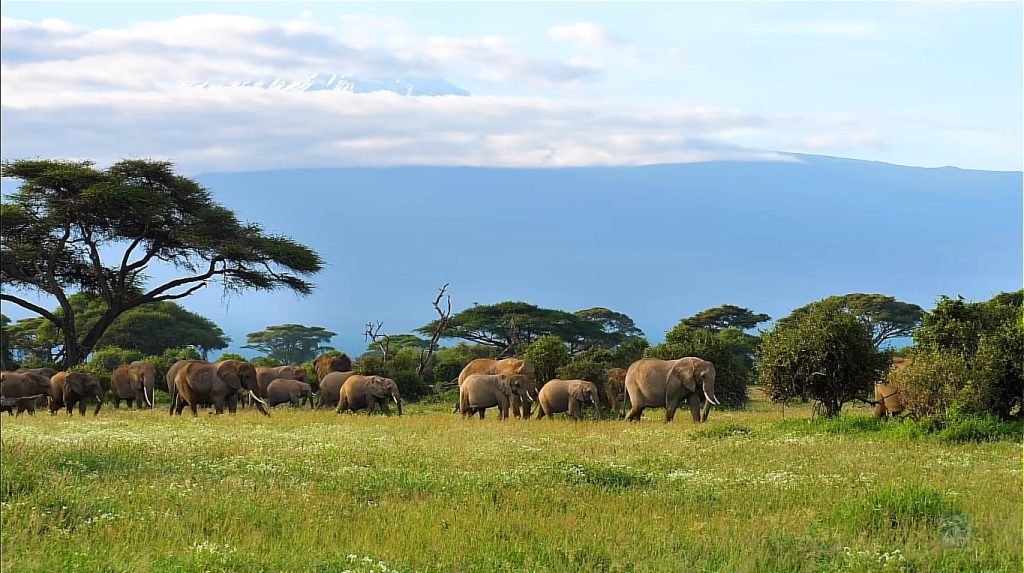
Best Time to Travel to Africa for Safari
The best time to travel to Africa for a safari largely depends on what you want to see and experience. Generally, the dry season, which runs from June to October in most African countries, is considered the optimal time for safaris. During this time, the vegetation is less dense, and animals gather around waterholes, making them easy to spot. Additionally, the weather is generally cooler and less humid, providing more comfortable conditions for safari adventures.
If you’re looking to witness the Great Wildebeest Migration in East Africa, the best time to travel would be between July and September when the wildebeest are crossing the Mara River. For those interested in gorilla trekking in Uganda or Rwanda, the drier months of June to September and December to February are the best times to go.
Other Wildlife Experiences in Africa
While safaris are a must-do experience in Africa, the continent also offers a range of other unique wildlife encounters. Birdwatching, whale watching, and turtle hatching are just a few examples of experiences worth adding to your African itinerary.
Gorilla trekking in Uganda and Rwanda provides an up-close encounter with the endangered primates, while walking safaris in Zambia offer a chance to spot predators on foot. South Africa’s marine safari experiences allow you to witness great white sharks, whales, and other marine life in their natural habitat.
Choosing the best time to travel for these experiences also depends on the specific activity and region. For example, whale watching in South Africa is best between June and November, while turtle hatching in Kenya takes place between February and April.
In conclusion, when planning a trip to Africa, consider the best time to travel for safari and other wildlife experiences. Timing your trip right will ensure an unforgettable adventure and maximize your chances of encountering Africa’s fascinating wildlife.
African Cultural Festivals and Events
Africa is a continent rich in culture and diverse traditions. One of the best ways to immerse oneself in the African way of life is by attending cultural festivals and events. These unique experiences offer the opportunity to learn about local customs, enjoy traditional music and dance, and taste delicious cuisines.
When planning a trip to Africa, be sure to research the cultural events and festivals taking place during your visit. You don’t want to miss out on these memorable experiences that will enrich your African adventure.

Best Time to Travel to African Cultural Festivals and Events
The timing of cultural festivals and events varies across the continent. However, most festivals and events are held during the dry seasons when the weather is favorable for outdoor celebrations. The dry seasons in Africa usually fall between June and October and December to February.
Some popular cultural events and festivals include:
| Event/Festival | Location | Date |
|---|---|---|
| FESPACO | Ouagadougou, Burkina Faso | February |
| Timbuktu Festival | Timbuktu, Mali | January |
| Cape Town Jazz Festival | Cape Town, South Africa | March |
| Egyptian Film Festival | Cairo, Egypt | June |
These are just a few of the many events happening throughout Africa. With a bit of research, you can find local events happening throughout the year in different African countries.
Top African Travel Destinations for Cultural Festivals and Events
There are numerous African travel destinations where you can experience cultural festivals and events. Here are some top destinations to consider:
- Ghana: The West African country is famed for its vibrant cultural scene with festivals such as the Homowo Festival, Chale Wote Street Art Festival, and the Panafest.
- Morocco: The North African country has a rich cultural heritage celebrated during the Marrakech Popular Arts Festival, Fes Festival of World Sacred Music, and the International Film Festival of Marrakech.
- South Africa: The Rainbow Nation is home to spectacular cultural events such as the Cape Town Carnival, Durban July Horse Race, and the National Arts Festival.
- Kenya: The East African country offers a rich cultural experience during events such as the Lamu Cultural Festival, Mombasa Carnival, and the Rift Valley Festival.
These destinations are just a few of the many African countries with cultural events and festivals. When planning your trip, consider the destinations with the events and experiences that align with your interests.
Attending cultural events and festivals in Africa is a unique opportunity to immerse oneself in the local culture. The celebrations provide an avenue to learn, enjoy and meet people, which can expand your perspective and enrich your travel experience.
Planning a Beach Getaway in Africa
When it comes to Africa, many only think of safaris and wildlife, but the continent also offers breathtaking beaches along its coastline. The best time to hit the beach in Africa varies by destination, and you’ll want to consider a few factors when deciding when to plan your trip.
First, consider the weather. Africa experiences two main seasons: rainy and dry. Depending on where you plan to visit, these seasons will vary. For instance, the rainy season in East Africa is from March to May, while in South Africa, the rainy season is from November to February. The dry season tends to be the better time to visit the coast, but some areas such as Zanzibar or Madagascar, have more rainfall outside of their wet seasons, so it’s worth checking with a trusted travel agent for the best time to visit for your desired beach destination.
Water temperature is also a factor to consider when planning a beach getaway in Africa. The Indian Ocean, for example, is generally warm throughout the year, providing comfortable temperatures for swimming and water sports. The Atlantic Ocean, on the other hand, is cooler, especially during the winter months.

Some popular beach destinations in Africa include Zanzibar and the Seychelles for pristine white sand beaches, and Cape Town for rugged coastal scenery and excellent surf. Other coastal regions worth exploring include the coast of Morocco, Mozambique, and Kenya.
Overall, the best time to travel to Africa for a beach vacation is during the dry season, but this will vary depending on the location. Be sure to do research on your desired beach destination and speak with a trusted travel agent to help you plan the perfect beach getaway in Africa.
Wildlife Encounters Beyond Safaris
When we think of wildlife experiences in Africa, safaris are often the first activity that comes to mind. However, there are many other opportunities to witness Africa’s unique and diverse wildlife. From gorilla trekking to bird watching and whale watching, there are plenty of experiences to choose from.
Gorilla Trekking
One of the most unforgettable wildlife encounters in Africa is gorilla trekking. The best time to go on a gorilla trek is during the dry season, which runs from June to September, and again from December to February. During these months, the gorillas are easier to spot as they stick to the open areas and are not hidden behind dense vegetation.

Bird Watching
Africa is a birdwatcher’s paradise, with over 2,300 bird species scattered across the continent. The best time for bird watching is during the wet season when birds are more active and easier to spot. Some of the top birdwatching destinations include the Okavango Delta in Botswana, Lake Nakuru in Kenya, and the Virunga Mountains in Rwanda.

Whale Watching
For those seeking a marine wildlife experience, whale watching is a must-do activity. The best time for whale watching varies depending on the destination. In South Africa, the best time to spot southern right whales is between June and November, while in Mozambique, the best time to see humpback whales is from July to November.

Best Time to Travel for Wildlife Encounters in Africa
The best time to travel for these wildlife encounters varies depending on the specific activity and destination. It is important to research and plan ahead to ensure you get the most out of your experience. However, as a general rule, the dry season is often the best time to go to witness wildlife, as animals are easier to spot as they congregate near water sources.
Overall, Africa offers various opportunities for wildlife encounters beyond safaris. Whether it’s gorilla trekking, bird watching, or whale watching, there’s something for everyone. With careful planning and research, you can experience the magic of Africa’s wildlife in a unique and unforgettable way.
Exploring Africa’s National Parks and Reserves
Africa is renowned for its spectacular national parks and reserves, which offer incredible opportunities to witness wildlife and nature at its best. From the vast savannas of Serengeti National Park to the misty mountains of Uganda’s Bwindi Impenetrable National Park, Africa has something for everyone.
While visiting national parks and reserves is a highlight of any Africa trip, it’s important to plan your visit carefully to maximize your chances of spotting wildlife. The best time to visit these parks and reserves varies depending on the region and the season.
| National Park/Reserve | Best Time to Visit |
|---|---|
| Masai Mara National Reserve, Kenya | July to October for the Great Migration |
| South Luangwa National Park, Zambia | June to October for dry season game viewing |
| Bwindi Impenetrable National Park, Uganda | June to August and December to February for gorilla trekking |
| Serengeti National Park, Tanzania | December to July for the Great Migration |
In addition to considering the best time to visit, it’s important to choose the right national park or reserve for your interests and preferences. Each park and reserve has its own unique wildlife and scenery, so be sure to research thoroughly before making a decision.
Some national parks and reserves also offer a variety of accommodation options, ranging from budget-friendly campsites to luxurious lodges. When choosing where to stay, consider not only your budget but also your preferred level of comfort and amenities.
Overall, visiting national parks and reserves in Africa is an unforgettable experience that should not be missed. By carefully planning your visit and choosing the right parks and reserves, you can ensure a wildlife encounter of a lifetime.
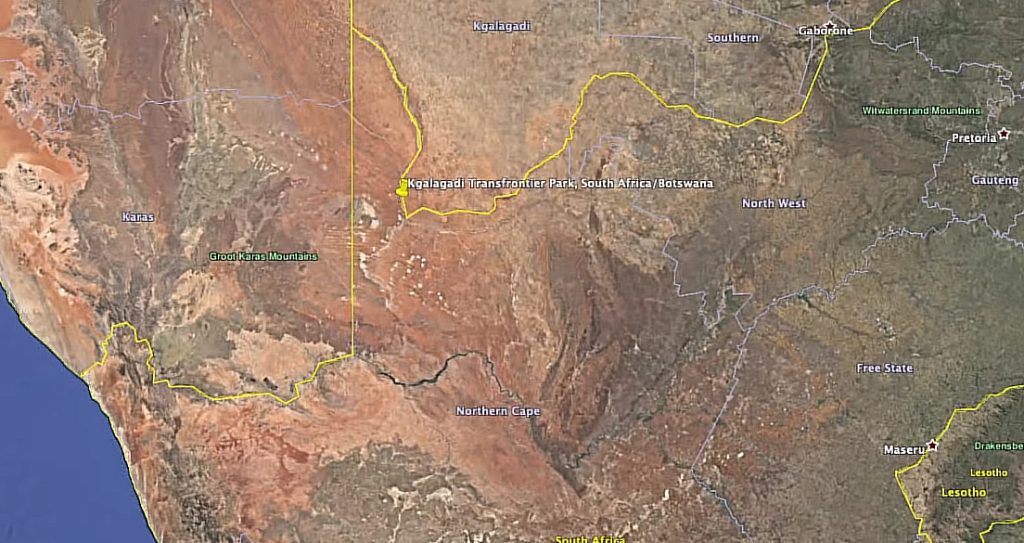
Safety Considerations for Traveling to Africa
One of the most common concerns when traveling to Africa is safety. However, with the right precautions, it is possible to have a safe and enjoyable trip.
First, research the safety situation in the specific country or region you plan to visit. Check official travel advisories and consult with your travel agent or tour operator.
Be aware of your surroundings and avoid displaying wealth or valuables. Keep important documents, such as your passport, in a safe place, and carry only the necessary cash and cards.
When exploring new areas, especially at night, travel in a group or use a reputable tour company. Avoid walking alone or in deserted areas.
Take necessary health precautions, such as getting the required vaccinations and bringing essential medications. Also, be cautious when consuming food and drinks, and drink only bottled or filtered water.
Overall, while Africa may have some specific safety concerns, it is generally a safe and welcoming destination for travelers who take the necessary precautions.
Vaccinations and Health Precautions for Africa Travel
When planning a trip to Africa, it’s crucial to take necessary health precautions and be up-to-date with all required vaccinations. This is especially important for travelers visiting from other parts of the world, such as the United States, as the region may have different health risks than what they are accustomed to.
Africa travel vaccinations are essential for ensuring optimal health and safety during your journey. Some of the recommended vaccinations for travelers include:
| Vaccination | Description |
|---|---|
| Yellow fever | A viral infection spread by mosquitoes that can cause fever, chills, and liver damage. Proof of a yellow fever vaccination is required for entry to some African countries. |
| Typhoid fever | A bacterial infection that can cause fever, headache, abdominal pain, and diarrhea. Recommended for travelers who may be exposed to contaminated food or water. |
| Hepatitis A and B | Viral infections that affect the liver and can cause fever, fatigue, and jaundice. Recommended for travelers who may be exposed to contaminated food or water or through sexual contact. |
| Malaria | A potentially life-threatening disease spread by mosquitoes that can cause fever, chills, and flu-like symptoms. Antimalarial medication is recommended for travelers visiting areas with high risk of malaria. |
In addition to vaccinations, there are various health precautions for Africa travel that travelers should be aware of. It’s important to drink only bottled or purified water, avoid raw or undercooked food, and practice good hygiene habits such as frequent hand washing. Travelers should also protect themselves from mosquito bites by using insect repellent, wearing long-sleeved clothing and pants, and sleeping under mosquito nets.
It’s recommended to schedule a visit with a healthcare provider at least four to six weeks before your trip to discuss any necessary vaccinations or medications. It’s also important to research the specific health risks of the countries or regions you plan to visit in Africa.
By taking the necessary health precautions for Africa travel, you can minimize the risk of illness and maximize your enjoyment of the stunning continent.
Visa Requirements and Entry Regulations for Africa
Traveling to Africa can be an exciting and rewarding experience, but it’s crucial to understand the visa requirements and entry regulations before embarking on your journey. As someone who has traveled extensively throughout Africa, I can attest to the importance of proper planning and preparation to ensure a smooth and stress-free trip.
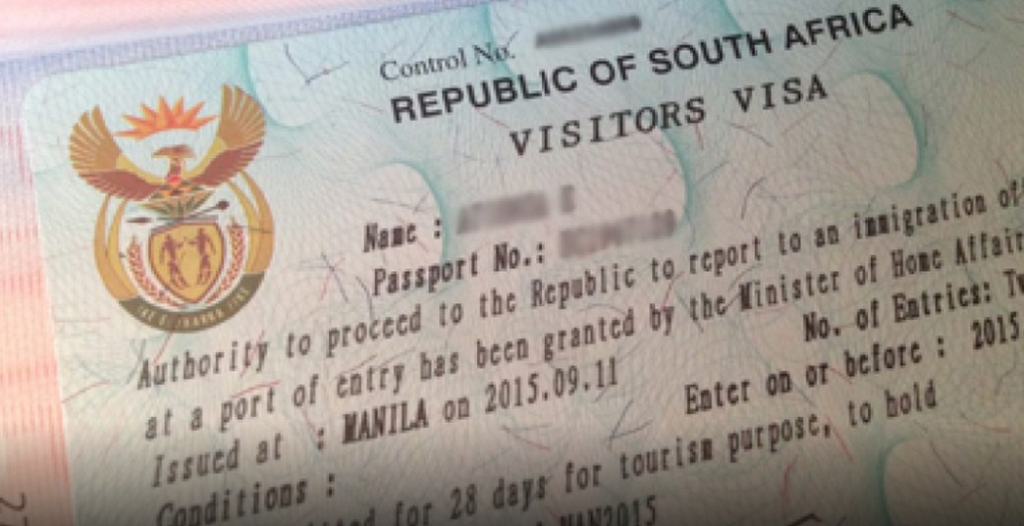
Visa Processes
Visa requirements for Africa can vary depending on your destination and nationality. Some countries offer visa-free entry, while others require visas to be obtained in advance or on arrival. It’s essential to research the specific visa requirements for your chosen destination and ensure that you have the necessary documentation well in advance of your trip.
Many African countries have embassies or consulates located in major cities around the world, and these offices can provide information on the visa process and requirements. It’s advisable to contact the relevant embassy or consulate at least several weeks before your travel date to allow enough time for visa processing.
Visa-Free Entry
As a U.S. citizen, you can visit several African countries without a visa, including South Africa, Botswana, Namibia, and Mauritius. However, it’s important to note that visa-free entry does not allow for extended stays, and there may be limits on the duration of your visit. It’s always advisable to check the latest visa regulations before traveling.
Travel Documentation Requirements
In addition to visas, there may be other travel documentation requirements, such as proof of yellow fever vaccination or a valid passport with several blank pages. It’s essential to check the specific requirements for your destination well in advance of your travel date and ensure that you have the necessary documentation.
Final Thoughts
Visa requirements and entry regulations can be complex and time-consuming, but proper planning and preparation can make a significant difference in ensuring a smooth and stress-free trip. Researching specific visa requirements, contacting embassies or consulates, and obtaining the necessary documentation well in advance of your trip can help you avoid unexpected delays or complications.
Luxury Travel Experiences in Africa
For those seeking an indulgent getaway, Africa offers a range of luxury travel experiences. From opulent safari lodges to private yacht charters, the continent has something to suit every taste and preference.
To ensure a truly luxurious experience, it’s essential to work with the best African safari travel agents who have a reputation for delivering exceptional service. These experts can tailor your itinerary to include exclusive experiences such as private game drives, hot air balloon safaris, and helicopter tours.
When it comes to accommodation, Africa has a wealth of luxurious options, ranging from five-star hotels to private villas and lodges. Some standout properties include Singita Kruger National Park, which boasts two lodges and a private villa set within 33,000 acres of pristine wilderness; and the Royal Malewane, a retreat that combines classical colonial style with modern amenities.
Private tours are also a popular choice for luxury travelers, as they allow for a personalized and intimate experience. Visitors can explore Africa’s top attractions with their own dedicated guide, who can share insights and knowledge about the culture, history, and natural wonders of the continent.
For those seeking an even more exclusive experience, private yacht charters are available along the coast of East Africa, providing access to secluded beaches and islands. Visitors can also indulge in helicopter tours that offer breathtaking aerial views of Africa’s iconic landmarks, such as Victoria Falls and Table Mountain.
In summary, luxury travel experiences in Africa are plentiful, and with the right planning and expertise, travelers can enjoy a truly indulgent getaway. Working with the best African safari travel agents, staying in opulent lodges, and indulging in private tours and exclusive experiences are just a few of the ways to elevate your African journey to the next level.
Budget Travel Tips for Africa
Traveling to Africa on a budget can be a challenge, but with the right tips and strategies, it’s possible to have an economical trip without sacrificing the experience. Here are some budget travel tips for Africa:
- Choose affordable destinations: Some African destinations are more expensive than others. Research and select affordable destinations that fit within your budget.
- Travel in the low season: The high season may be the best time to travel to some destinations, but it’s also the most expensive. Opt for the low season when prices are lower, and you can still enjoy the same experiences.
- Stay in hostels or guesthouses: Accommodation can be one of the most significant expenses. Instead of pricey hotels, consider staying in hostels or guesthouses. Many offer affordable rates and a chance to meet other travelers.
- Eat like a local: Dining out can be expensive, especially in tourist areas. Venture out and try street food or local eateries that offer budget-friendly meals.
- Use public transportation: Taxis and private transportation can eat into your budget. Use public transportation such as buses or trains to get around. It’s cheaper and offers a chance to experience local life.
- Book in advance: Booking flights, accommodations, and activities in advance can save you money. Look for early bird deals and promotions.
With these budget travel tips, you can plan an affordable trip to Africa without sacrificing the quality of your experience. Explore the best places to travel in Africa while keeping your budget in mind.
Essential Travel Tips for First-Time Visitors to Africa
If you’re planning your first trip to Africa, you’re in for an unforgettable adventure. However, traveling to an unfamiliar place can be daunting, so here are some essential travel tips to help you make the most of your journey:
- Do your research: Africa is a vast continent with diverse cultures, languages, and customs. It’s important to research the regions you plan to visit and familiarize yourself with their cultural norms and practices.
- Plan ahead: Make sure to plan your itinerary and make reservations in advance. This will help you avoid any last-minute stress and ensure availability of accommodations and activities.
- Pack appropriately: Africa’s climate varies depending on the region, so pack accordingly. Make sure to bring comfortable and breathable clothing, sturdy shoes, sunscreen, insect repellent, and a hat. Don’t forget to pack any necessary medications and first aid supplies.
- Stay connected: Before your trip, make sure to research and obtain appropriate SIM cards or mobile data plans to stay connected with loved ones and have access to maps and travel apps.
- Be aware of your surroundings: Although Africa is generally a safe travel destination, it’s always important to be aware of your surroundings, especially in crowded areas and at night. Keep valuables locked in your hotel safe, and avoid flaunting expensive jewelry or electronics.
- Try local cuisine: African cuisine is rich in flavor and diversity, so be sure to try local dishes and street food. However, be cautious with food hygiene, and only drink bottled water.
- Respect the wildlife: Africa is renowned for its wildlife, but remember to always respect the animals and their habitats. Follow the instructions of your guide, and refrain from feeding or touching the animals.
- Interact with locals: One of the joys of traveling to Africa is interacting with locals and learning about their cultures and traditions. Don’t be afraid to strike up a conversation and ask questions.
With these essential travel tips, you’ll be well-prepared for your first trip to Africa. Enjoy the journey!
Testimonials and Reviews from African Travelers
Don’t just take my word for it, hear what other travelers have to say about their African adventures!
“I was blown away by my trip to Africa! The wildlife sightings on my safari were beyond belief, and the cultural experiences were equally impressive. I highly recommend this destination to anyone looking for a truly unique and immersive travel experience.”- Jane, Colorado
African travel resource reviews also rave about the continent’s offerings:
- “I used African Travel Gateway to plan my trip and could not have been happier with their services. They provided excellent recommendations for accommodations and activities, and their knowledge of the region was invaluable.”
- “My family and I loved our budget-friendly trip to Africa! We were able to experience all the highlights while sticking to our budget thanks to the helpful tips and advice we received from African Travel Reviews.”
Whether you’re planning a luxury vacation or a budget-friendly adventure, Africa has something for everyone. Take it from the travelers who have already been there – this continent is a must-visit destination!
Conclusion
Planning a trip to Africa requires careful consideration of several factors, including the best time to travel, visa requirements, health precautions, and budget. With this comprehensive guide, you now have a better understanding of what to expect when traveling to Africa.
Remember to research the climate and weather patterns of your desired destination, as well as any cultural events or festivals you may want to attend. Understanding the migration patterns of wildlife will also be crucial for a successful safari experience.
Regardless of your budget, Africa offers amazing luxury accommodations and budget-friendly options to suit every traveler’s needs. And with its diverse cultures and stunning natural beauty, Africa is a destination that will leave you in awe.
So, pack your bags and embark on an incredible journey to this captivating continent. Whether you’re a first-time visitor or a seasoned traveler, Africa will undoubtedly leave a lasting impression on you. I hope this guide serves as a helpful resource as you plan your unforgettable African adventure.
Thank you for reading this Africa travel guide, and happy travels!
FAQ
Q: What factors should I consider when determining the best time to travel to Africa?
A: When planning your trip to Africa, it is important to consider the weather conditions, wildlife experiences, and other important considerations to ensure an optimal travel experience.
Q: How does Africa’s climate vary across different regions?
A: Africa is a vast continent with diverse climates. The climate varies significantly from region to region, and understanding these variations is essential in determining the best time to visit specific countries or regions in Africa.
Q: What are the four seasons in Africa?
A: Africa experiences four distinct seasons: summer, autumn, winter, and spring. Each season offers unique experiences in different parts of the continent.
Q: When is the best time to go on a safari in Africa?
A: The best time to go on a safari in Africa depends on various factors, including the migration patterns of animals, optimal weather conditions, and opportunities to witness the Big Five.
Q: What are some of the cultural festivals and events in Africa?
A: Africa is known for its rich culture and vibrant festivals. Exploring the cultural events in Africa allows you to immerse yourself in local traditions and celebrations. We will discuss some of the most renowned festivals and events, highlighting the best time to visit.
Q: When is the best time to plan a beach getaway in Africa?
A: Africa offers stunning beaches along its coastline, making it a perfect destination for a beach getaway. The best time to plan a beach vacation in Africa depends on factors such as weather, water temperatures, and popular beach destinations.
Q: Apart from safaris, what other wildlife encounters are available in Africa?
A: Africa offers various opportunities for wildlife encounters beyond safaris. Activities such as gorilla trekking, birdwatching, and whale watching are popular options. We will discuss the best time to engage in these activities across different African destinations.
Q: Which are some of the top national parks and reserves in Africa?
A: Africa is home to numerous national parks and reserves that offer unique wildlife experiences. We will delve into some of the top national parks and reserves and discuss the best time to visit for optimal wildlife sightings.
Q: Are there any safety considerations when traveling to Africa?
A: Safety is a crucial aspect of travel planning. We will address common safety concerns about traveling to Africa and provide essential tips and advice to ensure a safe and enjoyable journey across the continent.
Q: What vaccinations and health precautions should I take before traveling to Africa?
A: Before traveling to Africa, it is important to be aware of the necessary vaccinations and health precautions. We will discuss the recommended vaccinations, essential medications to carry, and other health considerations for a safe trip.
Q: What are the visa requirements and entry regulations for traveling to Africa?
A: Understanding the visa requirements and entry regulations for Africa is vital for a smooth travel experience. We will provide information on visa processes, countries that offer visa-free entry, and any other necessary travel documentation.
Q: What are some luxury travel experiences in Africa?
A: Africa offers a range of luxury travel experiences for those seeking an indulgent getaway. We will highlight luxury accommodations, private tours, and other exclusive experiences to consider for a luxurious trip to Africa.
Q: Can I travel to Africa on a budget?
A: Traveling to Africa on a budget is possible with the right tips and strategies. We will provide budget-friendly travel advice, affordable destinations, and money-saving tips to help you plan an economical trip to Africa.
Q: What essential travel tips should first-time visitors to Africa know?
A: If it’s your first time traveling to Africa, this section will provide valuable tips to enhance your experience. From cultural etiquette to packing essentials, we will cover everything you need to know before embarking on your African adventure.
Q: Can I read testimonials and reviews from other African travelers?
A: We will showcase testimonials and reviews from travelers who have explored Africa, providing additional insights and perspectives on their experiences. These reviews will help you gain a better understanding of the diverse travel possibilities in Africa.
Q: What are the key takeaways from this guide to traveling to Africa?
A: In the final section, we will summarize the key points discussed throughout the article and reiterate the importance of considering the best time to travel to Africa. With this comprehensive guide, you will be well-equipped to plan an unforgettable journey to the captivating continent.

